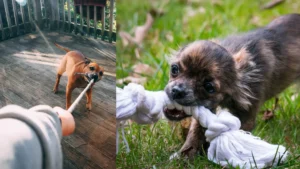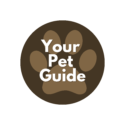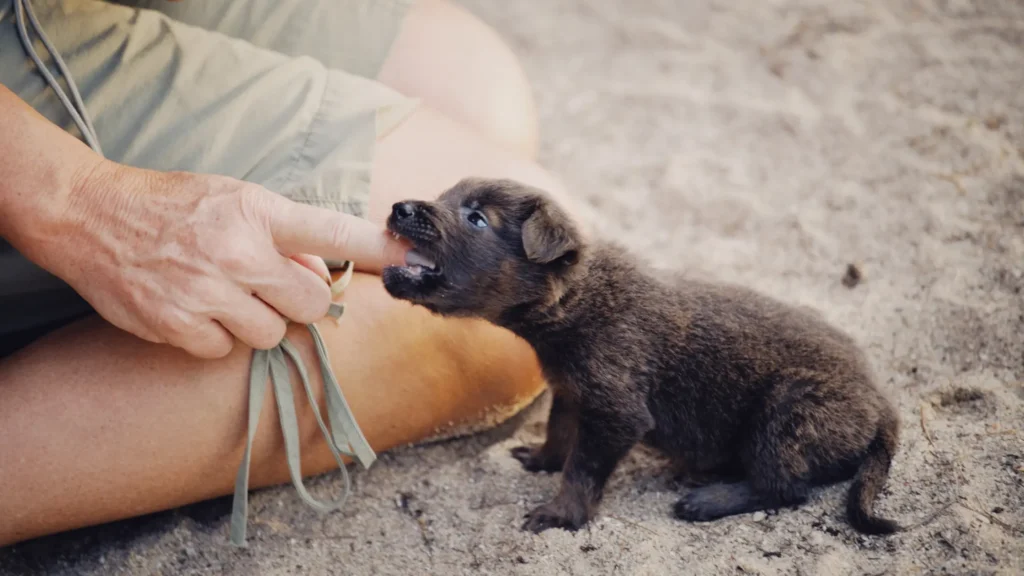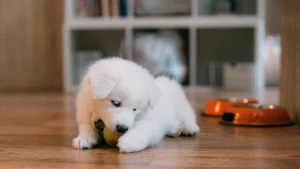How to Teach Your Puppy Not to Bite: Any dog owner knows just how difficult it is to prevent a puppy from biting. Chewing up stuff, biting their owners, or anyone else who tries to cuddle with them is something that comes naturally to puppies, since biting is one of the most natural and primitive movements for dogs and predators in general.
Introduction
Bringing a new puppy into your home is a delightful experience, but dealing with their biting tendencies can be challenging. In this guide, we’ll explore effective strategies to teach your puppy not to bite.
Therefore, teaching your dog or puppy to go against its natural instincts and behave in a more “civilized” manner, can be a really challenging task which requires lots of patience and following the correct strategy.
The main steps you will have to take to prevent your puppy from biting are:
- Get them appropriate chew toys.
- Use positive reinforcement method.
- Avoid rough playtime.
- Make sure your dogs get enough time to socialize.
- Be consistent with your training.
Get The Appropriate Chew Toys
As previously stated, biting is a natural and much needed movement for puppies. Therefore, it is almost impossible to make them stop biting altogether. However, you can teach them to only bite certain objects such as chew toys.
To achieve this, you should urge them to bite on your chew toy and generously praise them or reward them with a treat once they do. Eventually they will start biting on their chewing toy more and more often and avoid biting other objects to please you. In addition, you can start playing tug of war with them by slightly pulling on the chewing toy while your puppy is biting down on the other side. Most dogs greatly enjoy this and will want to play a game of tug with you as often as possible which will teach them to focus on biting their chewing toy and not other objects.
You should also be careful when picking out the appropriate chew toys. A poor-quality chew toys will not last longer than a week and might even cause harm to your dog.
A few chew toys we would highly recommend are:
- The duck shaped dog toy from the Pet Supplies store
- The Dental Links dog toy from the Petstages store
- The Nylabone flavored dog toy from the Nylabone store
- Rope Tug dog toy from the Mamoth Pet Products store

Use Positive Reinforcement Method
No matter what you are trying to get your puppy to do it is important to use positive reinforcement. Punishing your dog in any manner will not work as effectively and can lead to psychological trauma.
Instead make sure you praise your dog as much as possible for not biting or for biting its chew toy and constantly reward it with treats. The correct method is not to punish your dog when it starts biting you or something else, but to tell it to stop and reward it with a treat once it does.
The more you progress the more you should wait before rewarding it. By repeating this process enough, you will eventually get your puppy to stop biting things it should not.
Avoid Rough Playtime
You should also avoid playing rough games with your puppy as much as possible. Wrestling, or playful fighting for example can bring survival and predatory instincts to the surface and only increase biting. It is important to always keep your dog as calm as possible.
This obviously doesn’t mean you should not give them the chance to exercise. You should definitely give them plenty of playtime and take them on lots of walks, but it is advised to pick less aggressive games such as fetch or tug of war.
Make Sure Your Dog Gets Enough Time To Socialize
Socializing with other dogs is something that is often overlooked but is of utmost importance. Coming in contact and socializing with other dogs will show your dog what the appropriate way to behave is. They will learn what the acceptable way to play is and will learn to control their biting.
In many cases, puppies, much like humans, will observe the behavior of others and subconsciously end up replicating it.
Be Consistent With Your Training
Your daily training sessions do not have to be any longer than 15 minutes. The important thing is to remain consistent and repeat the same training routine every day. Eventually your dog will realize what is should and what it shouldn’t do.
Long training sessions once every few weeks will only tire both you and your dog and not yield any results. All in all, as previously stated training your dog is a matter of patience and consistency. It could take days, weeks, or even months but in the end the results are inevitable. If you are unable to dedicate the time needed to your dog, then perhaps it would be better to hire a professional dog trainer to help you out.
FAQs about How To Teach Your Puppy Not To Bite
1: At what age should I start teaching my puppy not to bite?
A: Start teaching bite inhibition as soon as you bring your puppy home, usually around 8 weeks.
2: Is it normal for puppies to bite during teething?
A: Yes, teething can cause discomfort, and puppies may chew more during this phase.
3: How do I stop my puppy from biting my hands and feet?
A: Redirect the biting to appropriate toys and provide alternatives for them to chew on.
4: Can I use bitter sprays to deter biting?
A: Bitter sprays can be effective in deterring biting, but ensure they are pet-safe.
5: What if my puppy continues to bite despite training?
A: Seek guidance from a professional dog trainer or behaviorist for personalized assistance.
Conclusion
Teaching your puppy not to bite requires patience, consistency, and positive reinforcement. By understanding their behavior and employing effective training techniques, you’ll build a strong bond and foster good behavior in your furry friend.
Useful Equipment
- Fresh Breathies to finally kiss bad doggie breath goodbye.
- Brush for dog hair.
- Dog Grooming Kit
- Pet Hair Lifter
- The Best High Quality Dog Food
- Pet Merchandise.
Useful Courses
- Brain Training for Dogs – the best & most effective dog training course in the market right now.
So, let us know did you find this article helpful? Did you try out our training method? Are there any other questions you would like us to answer?
Let us know about your experiences with these dogs in the comment section down below.
If you are a dog or pet lover in general here are a few more articles you may find interesting:
- HOW TO GET YOUR DOG OR PUPPY TO STOP BARKING
- HOW TO TEACH YOUR DOG TO ROLL OVER
- HOW TO LEASH TRAIN YOUR DOG
- HOW TO TEACH YOUR DOG TO SHAKE
- THE BEST & HEALTHIEST DOG FOOD
- INDESTRUCTIBLE & CHEW PROOF DOG BEDS


